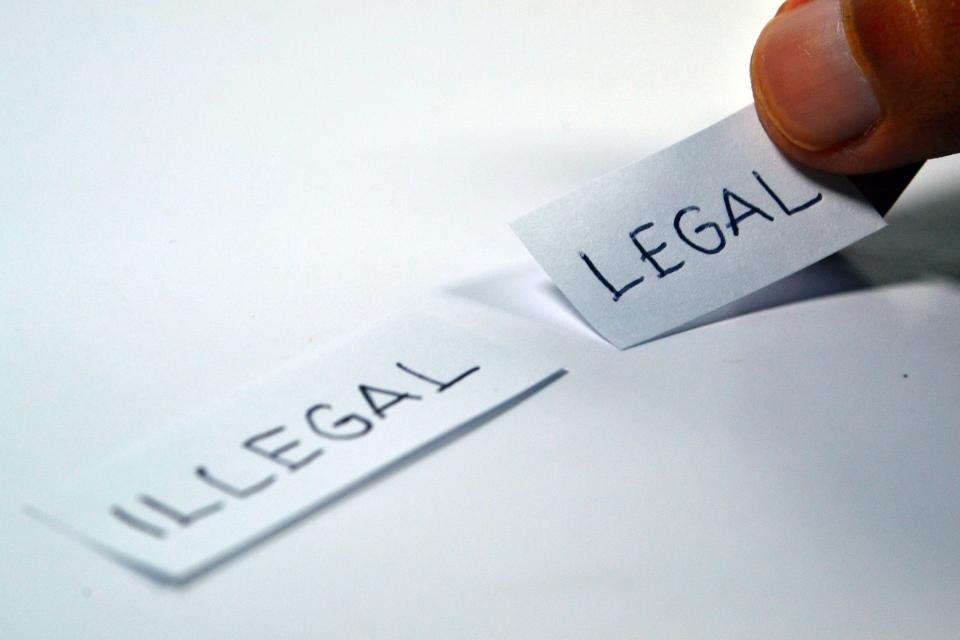
Information has become much easier to access in the age of media and internet. Internet and social media users keep surging by the day, as the internet continues to offer an endless array of information and possibilities.
For many democracy defenders world over, such a free flow of information forms a linchpin on which democracy thrives.
Zambia, like many African countries, subscribe to the African Declaration on Internet Rights and Freedoms which state in part that: “Everyone has the right to hold opinions without interference. Everyone has a right to freedom of expression; this right shall include freedom to seek, receive and impart information and ideas of all kinds through the Internet and digital technologies and regardless of frontiers.” The same is enshrined in Article 19 of the Universal Declaration of Human Rights (UDHR).
While internet rights have been a blessing to the masses and those individuals that seek to advance democratic tenets and human rights, it has been the most dreaded threat for some. Perhaps, Zambia’s scenario may somewhat epitomize the latter.
The immediate past President of the Republic of Zambia Mr. Edgar Chagwa Lungu sent the bill Cyber Security and Cyber Crimes Act, 2021, approved by the Parliament on March 2021 despite the disapproval and peaceful protests by civil society organisations.
This law among other provisions prohibits child pornography, cyber-attacks and cyberterrorism, but it’s also thought to be a silencer of government critics and an infringement on rights such as those to freedom of speech and privacy. A detailed analysis of that law exposed glaring grey areas that needed urgent attention, but complaints fell off deaf ears.
Cyber law in Zambia
Events leading to the 2021 General elections presented an emotional roller coaster for most Zambians as spats of verbal and physical violence exploded, and many national scandals unearthed.
All that has been credited to ‘the internet’ that provided, especially the young, with a platform to freely air out their grievances as one united front against many injustices, especially those to their freedoms of expressions and holding an opinion, among others. Amidst all these going-ons, a Cyber Bill was introduced four months prior elections, and it was met with resistance from majority of citizens. The selling point for the Bill was that it was going to tackle online hate speech and other online crimes, on the other hand, civil society organisations expressed fears that the same law would be used to gag citizens from voicing their views a few months before elections. A huge infringement of freedoms of expression and privacy was about to take place as far as the civil society organisations were concerned.
The selling point for the Bill was that it was going to tackle online hate speech and other online crimes, on the other hand, civil society organisations expressed fears that the same law would be used to gag citizens from voicing their views few months before elections.
I caught up with Laura Miti, the Executive Director of the Alliance for Community Action (ACA), an NGO that works to promote public resource accountability in Zambia. Laura is techno savvy and has earned herself an admirable reputation when it comes to the use of her social media accounts to advocate for a better-governed Zambia. She has been involved in various human rights campaigns, some of which have landed her in police cells on more than one occasion.
Ms. Mitis’ sole motivation is her belief that the Zambian poor are unnecessarily so and deserve better. She often suggests that if leaders, entrusted to manage public resources were less corrupt and more focused on bettering lives for the masses, Zambia would be nowhere near being poor.
I took time to ask Ms. Miti why she thought the Bill was enacted, and she said “The Cyber Crimes and Security law is a new Act that was ostensibly passed to prevent and address online bullying and promote online safety for all children. In real terms though it was passed to gag critics of the then administration because government was receiving its most consistent and robust criticism online.” Her current thought about the Bill is that it should either be repealed or critically amended as she feels it’s in a draconian state.
She added that this law “Gives inordinate power to nebulous authorities to prejudicially punish anyone seen as “compromising security”.” Examples are that a work place can be raided on the suspicion of this breach of security, however evidenced. Staff can be forced to give up confidential information and digital equipment seized – all on an accusation by anyone. Section 15 mandates Zambia Information and Communications Technology Authority (ZICTA) to institute investigations if it receives information on a cyber-security threat or incident. The Act does not however state the source of this information, how concrete it should be, or indeed what cybersecurity threat is. However, the person under investigation must be present for authorities wherever they are required to, and provide any information required, all on information from unknown sources.”
She further stated that this act hardly addresses bullying or child online safety. “It then in Section 84 makes all offenses under the Act extraditable under the Extradition Act. Considering that some offenses are in concrete this is an overreach.”
Zambia already has archaic laws such as defamation of the President on its statues. With this law, it is feared that authorities will prosecute citizens criticizing the President online, which will be a major infringement on freedom to have an opinion among other freedoms. This has led and will lead to citizen self-censorship and heavy-handed punishment of those the government chooses to.
Uncomfortable clauses
Ms Miti expressed special concerns about some clauses. For instance, Section 89 provides that “the Authority may, by declaration, exempt a person or class of persons, for a limited or unlimited period of time, from the requirement to abide by the provisions of this Act”. This essentially negates any protections of human rights in the Act. For example, the Authority can decide that by declaration a person or class of persons does not need a judge’s permit to search a premise suspected to be breaching the law, as provided for elsewhere in the law. This section tucked away at the very end of the Act provides for unmitigated but legal abuse of power.
The Authority can decide that by declaration a person or class of persons does not need a judge’s permit to search a premise suspected to be breaching the law, as provided for elsewhere in the law. This section tucked away at the very end of the Act provides for unmitigated but legal abuse of power.
In addition, Section 77“A person, who is not a suspect of a crime or otherwise excluded from an obligation to follow such order, but who has knowledge about the functioning of the computer system or measures applied to protect the computer data therein that is the subject of a search under this Act shall permit, and assist if reasonably required and requested by the person authorised to make the search by— (a) providing information that enables the undertaking of necessary measures in the circumstances; (b) accessing and using a computer system or computer data storage medium to search any computer data available to or in the system; (c) obtaining and copying such computer data; or (d) obtaining an intelligible output from a computer system in such a format that is admissible for the purpose of legal proceedings”. provides for any employee, for example, to give up passwords and confidential information even if they themselves are not accused of a crime.4 Ms Miti says “With this, authorities can intimidate a junior IT officer to provide access to digital spaces no matter how confidential. This read with the fact that a search can happen on unverified suspicion, by a law enforcement officer who can be anyone the Minister declares so (not necessarily a police officer), who then does not need to abide by the law as seen above – the cyber-crimes and security law negates the right to privacy for all citizens with a digital footprint.”
With this said, are citizens going to be quiet about this law now that we have a new government in power, or should the law be repealed or be cleaned to conform to people aspirations? The new government under President Hakainde Hichilema should open-up a broader consultation process, through online feedback sessions, among other methods to listen to different voices, including the most critical ones.
Some thoughts on how this law can be revised
- Categorically address online bullying as we saw online bullying especially targeted at women trending last year on social media. Women were bullied about their age or body images among other things which negatively affected them emotionally as they stated in their posts;this continues till date.
- The Law should marry with international Human rights law to ensure it does not violet people’s rights, such as those to privacy and expression online.
- Amidst Covid-19 pandemic, children use online spaces for learning purposes, among other things. Therefore, child online safety protection is not sufficient in this bill. Our government has a duty to ensure that children have a safe online space, and they should ensure investing in affordable programs, but at the same time protect them from bullying, harassment and online sexual abuse while at the same time ensuring that their digital rights are protected as stated in the UN general comment.
- 1918 views






Add new comment